Dealing with Insurance Companies After a Car Accident that was Not Your Fault
No matter how minor, car accidents are never fun to deal with. There is a lot to handle: insurance companies, possible car repairs or rental cars, and medical care—all while dealing with your regular, everyday life! Accidents are frustrating to deal with…especially when the accident was not your fault!
However, regardless of who is at fault, there are certain steps you need to take after being involved in an auto accident. If you were not the at-fault driver, there are certain precautions you can take to make sure your interests are protected.
First, it’s important to understand the difference between “fault” and “no fault,” and how this difference is determined in a car accident and for car insurance companies. Second, make sure you follow standard post-auto accident protocol. And finally, be diligent about a few key steps so that you’re not considered at fault according to the insurance claim.
What Does “Fault” vs. “No Fault” Mean in a Car Accident?
Sometimes, determining who is at fault in a car accident may seem very obvious. You were driving along and then *bam* you’re rear-ended and the back of your car is smashed. This wasn’t your fault, right? Maybe.
Typically, in a rear-end collision, the driver who did the rear-ending is at fault. But even these cases can vary if a car accident attorney can prove that you were negligent. For instance, if you reversed, braked suddenly, or if your brake lights were out, an attorney could argue that you are partially to blame.
To determine who is at fault in a car accident, you must establish who was negligent. Negligence is a legal theory used in car accident cases to mean someone has acted in a thoughtless or careless manner, which has caused harm or injury to another person. Often times the two parties involved in a car crash will share liability. However, there are cases when the other driver is 100% at fault.
In order to prove you were not at fault, you must be able to prove the other person was negligent in relation to the car accident. For instance:
- the other driver failed to pay attention to the road and look out for hazards
- the other driver failed to stop within a reasonable time
- the other driver failed to drive at a reasonable speed, based on posted speed limits, on road conditions, or on weather
- the other driver failed to maintain control of the vehicle
- the other driver failed to yield the right of way or failed to obey a stop sign
- the other driver failed to use turn signal(s) or their turn signals were out
- the other driver failed to follow at a safe distance
- the other driver admitted liability at the scene of the accident like apologizing to you or saying “I didn’t see you”
- the other driver was intoxicated, under the influence of alcohol or drugs
- the other driver ran a red light
What Does “Fault” vs. “No Fault” Mean in Car Insurance?
Proving to an insurance company that you were not at fault is a different manner. It is the insurance company’s job to determine who caused the car accident and who pays. Each state has slightly different laws regarding what car insurance companies cover and how fault is determined. Some states are “No Fault States” and others are “Tort States.”
No Fault States
As of 2020, the following states are “no fault” states, which means each driver turns to their own auto insurance for coverage for medical expenses and bills no matter who caused the crash.
- Florida
- Hawaii
- Kansas
- Kentucky
- Massachusetts
- Michigan
- Minnesota
- New Jersey
- New York
- North Dakota
- Pennsylvania
- Utah
Tort States
Most states are tort states. In tort states, insurers conduct an investigation into who caused the crash, and car insurance companies pay for damages including medical expenses and “pain and suffering” based on who is found at fault. The following states are tort states:
- Alabama
- Alaska
- Arizona
- Arkansas
- California
- Colorado
- Connecticut
- Delaware
- Georgia
- Idaho
- Illinois
- Indiana
- Iowa
- Louisiana
- Maine
- Maryland
- Mississippi
- Missouri
- Montana
- Nebraska
- Nevada
- New Hampshire
- New Mexico
- North Carolina
- Ohio
- Oklahoma
- Oregon
- Rhode Island
- South Carolina
- South Dakota
- Tennessee
- Texas
- Vermont
- Virginia
- Washington
- West Virginia
- Wisconsin
- Wyoming
Standard Steps to Take After a Car Accident
Whether or not you are at fault, there are standard do’s and don’ts after a car accident.
- Stop- If you are involved in an accident, it is your legal obligation to stop your car no matter how minor the accident.
- Breathe- Take a deep breath and try to remain calm.
- Assess the Scene- If you are hurt or injured, call 911 and stay where you are until you receive proper medical treatment. However, if you are well enough and the car is operational, move your car to a safe area like the side of the road, turn on your hazard lights and turn off your vehicle. If you have cones or flares, set those up to warn other vehicles. If the other driver or another passenger or pedestrian is hurt or injured you should also call 911.
- Call the Police- Even if both parties are not injured, or if the car accident was minor like a fender bender, it is still a good idea to call the police because your insurance company may require a police report when filing a claim. This police report can also help give you leverage when reaching a settlement or proving your version of events. When the police arrive, tell them exactly what happened. If you don’t know or aren’t sure, then don’t speculate or misstate any facts. If they ask if you are injured say that you don’t know, because often injuries might not show up until later. Even after minor accidents, you can sustain a serious or permanent injury. If there are no injuries or property damage and the police can’t make it to the accident scene, you can still file an accident report with the DMV. Some state laws require any car accidents to be reported.
- Gather the Facts- If the other driver is at fault, they are responsible for reporting the accident to their insurance provider. However, you can’t assume the at fault driver will report the accident, which is why it is important you gather as much information as possible:
- Name, address, and telephone number of the other driver. (Ideally, you’ll want to exchange information and take a photo of their driver’s license).
- Insurance company name and policy number of the other driver.
- Witness statements and their contact information. (If applicable, this could also help your case to prove the other motorist was at fault).
- Photographs of the scene (including the license plate of the other driver) and the site of the damage. Some car insurance companies let you upload pictures directly through their mobile app.
- Report the Accident: As soon as you can, contact your insurance company, even from the scene of the accident. Check the back of your insurance card for contact information if you’re not sure who to call. Once you’ve contacted your insurance company, an insurance agent will help you with the next steps including filing a claim if that is necessary. If your car is non-operational, they can help you with transportation like getting a rental car.
- Contact a Car Accident Lawyer: Once you’ve gotten medical attention and documented the accident, you should seek legal advice from an experienced auto accident attorney. An experienced personal injury law firm will be able to walk you through the process of dealing with your claim and proving the other motorist’s negligence. Speak with a lawyer who has experience working with car crash victims to have someone to advocate for you and your rights.
As you can see, knowing what to do after an accident is critically important. If you have been the victim in a car accident in the Las Vegas area or within Nevada, one of the most important things you can do is call Anthem Injury Lawyers: (702) 857-6000. Our team of attorneys offers the expertise and experience you require when you’re facing injuries, lost time at work and other life-changing and frustrating events resulting from your accident. Call Anthem Injury Lawyers today at (702) 857-6000.
Additional Steps to Take if You Were Not at Fault
Even if you were at fault, you’ll want to make sure you cover your bases. But the following steps are especially important in proving your innocence for insurance claim purposes.
- Police report- Not only do you want to make sure you call the police at the scene of the accident; you also want to follow up and get a copy of the police report for your insurance claim.
- Stick to the facts- Less is more, here. Do not admit fault in any way– even an apology can be used against you. Don’t volunteer any information, like if you were in a hurry because you were late to work. Simply gather the facts of the accident and report these facts to the police and your insurance company.
- Stay organized- Make sure to keep all your accident-related information and paperwork in one place. This includes your insurance claim number, the name of your insurance claims adjuster, receipts for any related expenses like a rental car, medical bills, or car repairs, and a copy of the police report.
Experienced Las Vegas Car Accident Attorneys
If you were involved in an auto accident that was not your fault in the State of Nevada, you should speak to an experienced personal injury attorney who is licensed in Nevada as soon as possible. The law firm of Anthem Injury Lawyers has a dedicated team of car accident lawyers and staff who are ready to help you with your car accident case. There is a lot of well-meaning legal advice out there from friends and on the Internet. While this may be informative, it is no substitute for consulting with experienced Las Vegas car accident lawyers. Anthem Injury Lawyers invites you to schedule an appointment with us to discuss your case.
We offer free case evaluations. Our office is conveniently located in Henderson, but we work with clients all over the Las Vegas Valley, including North Las Vegas, Summerlin, Spring Valley, Anthem, and the Strip. Contact us today for a free consultation at (702) 857-6000.
Last updated Thursday, December 14th, 2023 | Written by Puneet Garg






